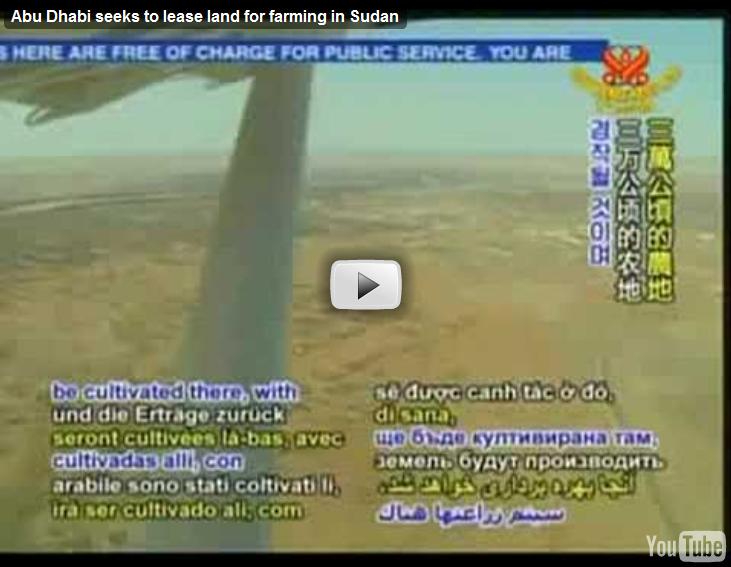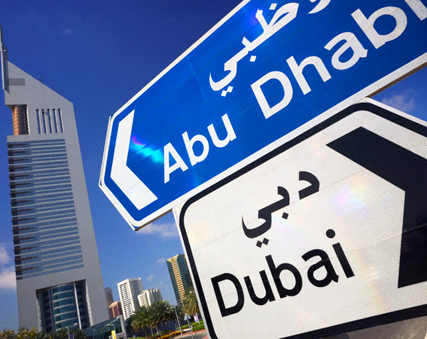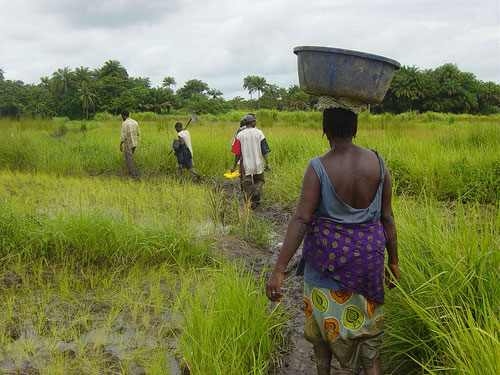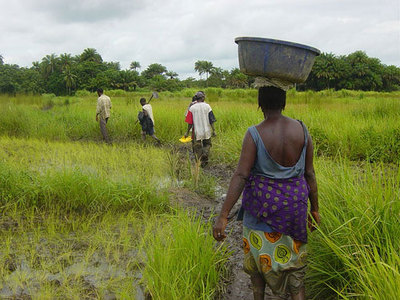Abu Dhabi seeks to lease land for farming in Sudan.
- YouTube
- 06 July 2008
A news video from UAE


A senior Ministry of Agriculture official on Thursday dismissed foreign media reports about China hoarding overseas farmland, saying the country is fully capable of ensuring its own food security.

Chinese investors, who have lately gained a strong presence in Kenya’s telecoms and heavy industry, are now eyeing the country’s farmland as a source of useful raw materials and employment opportunity

Dexion Capital prepares to raise $270 million for a private equity fund which will invest in land, and operate cattle and crop farms around the world.

The UN’s Food and Agricultural Organization is expanding its Abu Dhabi office tenfold to broker deals with farmers in such areas as the Horn of Africa.

China's Ministry of Agriculture (MOA) was drafting policies to encourage domestic companies to rent or buy land abroad for farming, especially for planting soy bean, the EO learned. The MOA had identified five regions, including Central Asia, Russia, Africa, Southeast Asia, and South America, for five major Chinese state-owned farming companies to invest in.

Both public and private sector investors in the Gulf are also looking at ways to improve local food supplies, by investing in a range of outlets from arable farm land in the Sudan, Algeria and Pakistan to introduce new technology to enhance the local production of foodstuffs and grains, livestock, poultry and fish.

Beijing is adding agricultural investments to its “go outward” strategy, under which domestic businesses are encouraged to venture into foreign markets.

China has taken a lead in efforts to boost Africa’s farm production, putting pressure on GCC states to also find long-term solutions for food supply in Africa

Bangladesh urged Myanmar on Thursday to lease it farm land near the border for rice cultivation to meet its growing food demand, an official said.

An agreement for the allocation of 5,000 hectares of land in the Beira region was signed by Mauritius and Mozambique early this year.

Globalisation has taken yet another twist with some Middle Eastern countries deciding to grow their crops in other countries.